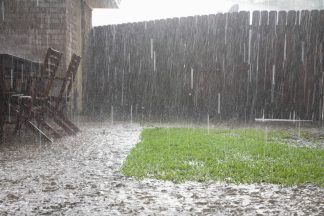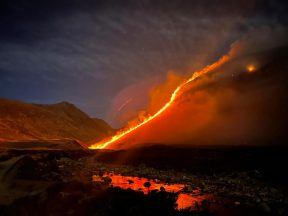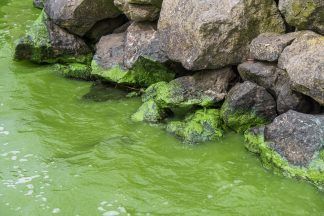Water levels in eastern Scotland are at “critical” levels after the country recently recorded its hottest day in history.
The Scottish Environment Protection Agency (SEPA) is asking businesses to reduce their water usage as nearly all of east and south Scotland is experiencing the impacts of scarcity.
It also warned that industrial users may see restrictions imposed in the coming weeks.
Groundwater and river levels have also been severely impacted by a lack of rainfall in the region and other parts of the country could also have to brace for similar conditions.
It comes after 2022 saw the driest January in the east since 1940, and temperatures rose to record levels through summer.
Earlier this month, Scotland recorded its hottest day in history, with 35.1C being recorded at Floors Castle in the Borders, which was more than 2C above the previous record of 32.9C, recorded at Greycook in 2003.
North and central Fife are expected to reach “significant” scarcity levels in the next week, while the Tweed catchment in the Borders is already at “moderate” scarcity levels.
The figures, contained in SEPA’s latest water scarcity report, mean the agency has the power to suspend abstraction licences.
The watchdog is responsible for managing Scotland’s natural water resources and issues licenses to businesses abstracting large amounts for agriculture and other industrial uses.
Head of water and planning at SEPA, Nathan Critchlow-Watton, said: “Water resources are critical in the east, with groundwater levels the lowest they have been since records began in 2009 and conditions not expected to improve in the short term. Even in parts where there has been some rainfall and an immediate increase in river flows, the areas still remain vulnerable due to longer term rainfall deficits and very dry ground conditions.
“That is why it is important for businesses that abstract water to take action and reduce their current usage, minimising the effects on the environment. SEPA is here to offer support and guidance, and each week we set out the key measures abstractors should be taking to conserve water.
“Climate change means water scarcity will become even more frequent. We want to work with businesses to plan their water usage long-term, so that we can preserve this vital resource as effectively as possible. Not only will that protect Scotland’s rivers and lochs, but it will minimise business risks as well.”
Water is a resource that underpins key sectors across Scotland including hydropower, golf, whisky production and farming.
NFU Scotland’s environmental resources policy manager, Sarah Cowie, said: “Water is a vital resource for the agriculture sector as we cannot produce food without a consistent and plentiful water supply. With significant areas of Scotland experiencing a prolonged dry spell, it’s important farmers take steps to ensure the continued supply of water and avoid disruption.”
Follow STV News on WhatsApp
Scan the QR code on your mobile device for all the latest news from around the country


 iStock
iStock




















